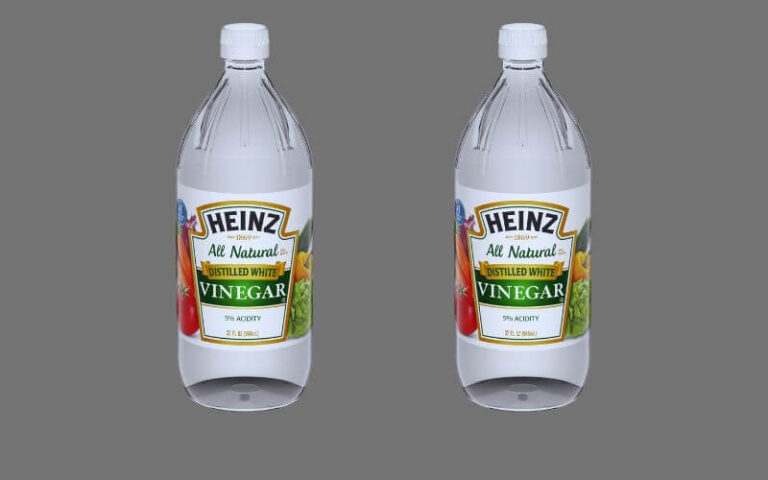There’s a new crisis brewing in the culinary world, and it’s not what you’d expect. It’s not a scarcity of exotic ingredients or a fallout from a natural disaster. It’s a vinegar shortage. This might seem trivial, but vinegar is a staple in many kitchens globally, and a shortage can significantly impact daily cooking, cleaning, and even some industrial operations. This post will delve into the matter, exploring its causes, effects, and possible solutions.
What is Vinegar?
Vinegar is a versatile liquid that’s used in cooking, cleaning, and even healthcare. It’s made when acetic acid bacteria ferment ethanol. The result is a sour-tasting liquid that’s used to add flavor to dishes, preserve food, clean surfaces, and even treat certain health conditions.
Whether it’s the tangy apple cider vinegar or the sweet balsamic variety, vinegar is an essential ingredient in many households and industries.
Is There a Vinegar Shortage?
Yes, currently, there is a vinegar shortage. It’s an issue that’s slowly creeping up on us, catching many consumers and businesses off guard. It’s not isolated to a particular region or type of vinegar but is a global issue affecting a variety of vinegar types.
Why is There a Vinegar Shortage?
There is a potential vinegar shortage due to several contributing factors:
- Supply chain disruptions caused by the COVID-19 pandemic have affected the production and distribution of vinegar.
- Increased demand for vinegar for cleaning and disinfecting purposes during the pandemic has further strained the supply chain.
- Poor weather conditions in key vinegar-producing regions have impacted crop yields and affected production.
These factors have resulted in higher prices and limited availability of vinegar for consumers and businesses.
What Types of Vinegar are Most Affected By the Shortage?
The vinegar shortage is affecting almost all types of vinegar. Whether it’s the common white vinegar, apple cider vinegar renowned for its health benefits, or specialty vinegars like balsamic and rice vinegar, all are feeling the pinch. This shortage is particularly problematic for industries that depend on vinegar for their products, like food and beverage companies.
Impact on Consumers and Businesses
The vinegar shortage has far-reaching consequences for both consumers and businesses alike. For households, vinegar is a staple ingredient in various recipes, a popular cleaning agent, and a key component in home remedies. The scarcity has led to increased prices, forcing consumers to rethink their budget and seek alternatives.
Businesses, particularly those in the food industry, are also feeling the pinch. Restaurants and food manufacturers rely on vinegar for marinades, dressings, and preservatives, and the shortage is causing disruptions in supply chains and production schedules. Smaller businesses with less purchasing power are especially vulnerable, as they struggle to source vinegar at affordable prices.
What Are the Alternatives to Vinegar During the Shortage?
As the vinegar shortage continues, consumers and businesses are exploring alternatives to mitigate its impact. Here are some suggestions for substitutes that can be used in various applications:
- Lemon or Lime Juice: These citrus juices can replace vinegar in salad dressings, marinades, and other recipes requiring acidity. They also work as effective cleaning agents and deodorizers.
- Wine or Beer: In cooking, wine or beer can be used to deglaze pans and create flavorful sauces, substituting vinegar’s role in these dishes.
- Citric Acid: Citric acid, available in powdered form, can mimic vinegar’s acidity in recipes, pickling, and preserving.
- Baking Soda and Water: For cleaning purposes, a mixture of baking soda and water can replace vinegar as an all-purpose cleaner.
- Cream of Tartar: This acidic powder can be used in place of vinegar in some recipes, such as meringues and whipped cream.
Industry Response and Efforts to Address the Situation
The vinegar industry has been working diligently to address the shortage and minimize its impact on consumers and businesses. Here are some of the things we’re doing:
- Increased Production: Vinegar manufacturers are ramping up production to meet the growing demand and alleviate the shortage.
- Diversifying Supply Sources: By sourcing raw materials from alternative suppliers, manufacturers can reduce their dependence on a single source and mitigate supply chain disruptions.
- Research and Development: The industry is investing in research to develop new production methods and innovative vinegar alternatives that are more sustainable and cost-effective.
- Collaboration and Communication: Industry stakeholders are working together and sharing information to identify solutions and coordinate efforts to address the vinegar shortage.
Conclusion
The vinegar shortage is a complex issue with far-reaching implications. However, with the right strategies and alternatives, consumers and businesses can navigate this challenge effectively.
It’s also vital to stay updated on the situation by monitoring news updates, checking with retailers, or following industry reports. As they say, information is power, and in this case, it’s the key to overcoming the vinegar shortage.
Also Read:


